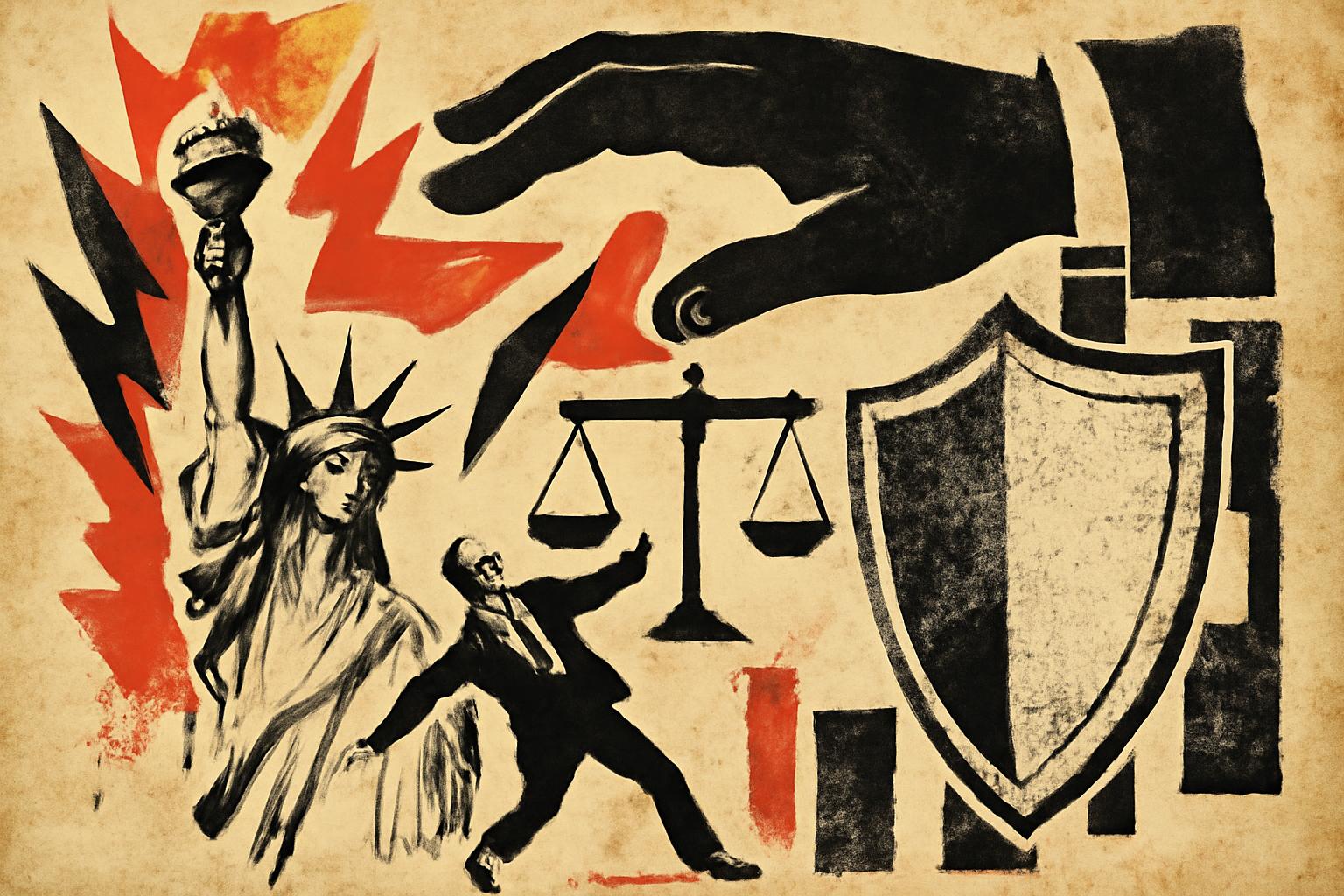What’s unfolding is a people’s revolt against entrenched corruption met with a state that answers with force, coercion, and the threat of emergency powers. Detainees in unmarked cars, raids, and beatings of peaceful protesters—these are not the signs of law-enforcement protecting rights; they are the hallmarks of a regime bent on preserving itself by silencing dissent. The rhetoric of “order, peace, and the rule of law” is hollow when it is the instrument by which the state suspends rights. The international response—largely quiet or symbolic—only reminds us that when power concentrates, accountability fades and rulers gamble with the basic freedoms of ordinary people.
From a Hayekian angle, this exposes the fundamental peril of centralized coercion dressed up as crisis management. The rule of law cannot be an ad hoc set of orders issued by whoever sits at the seat of power today. Law must be general, predictable, and knowable in advance so that individuals can plan their lives and defend their property and contracts. When leaders claim to restore “order” by sweeping up dissenters, the knowledge problem and the danger of discretionary command become obvious: the fabric of spontaneous social order—built from countless, locally informed decisions—unravels under top-down intervention. The only stable path to liberty is a framework that limits the state to protecting rights under general rules, leaving most social coordination to voluntary exchange and decentralized institutions. Crises are not invitations to expand state power; they are indictments of the attempt to replace dispersed knowledge with political fiat.
From Nozick’s rights-based view, the crackdown treats individuals as means to state ends rather than ends in themselves. The legitimate state, if one exists, is only the minimal entity that protects persons from force, theft, and fraud and enforces voluntary contractual obligations. Abductions in unmarked cars, raids, and torture betray nothing but the state’s imperial reach—an illegitimate expansion beyond rightful protection into coercive governance. Taxation and emergency measures that fund, authorize, or shield such actions are coercive redistributions of liberty, not rightful duties to protect it. The remedy is not more fevered policing but the retraction of power toward a minimal state that cannot suspend rights in the name of “order” and must justify every intrusion with a proper, universally applicable right-to-force justification. In other words: reduce, constrain, and sunset state power to its rightful protective function, and allow individuals to contract freely and live by the outcomes of voluntary association.
From Rand’s Objectivist stance, the integrity of the individual is non-negotiable. Rights are not privileges granted by the state; they are requirements of existence as a rational, thinking being. A government that uses force to suppress protest in service of “stability” betrays the moral premise on which a free society rests. The protesters are not criminals or enemies of the public good; they are fellow individuals asserting their rights to free association, speech, due process, and protection of property. If the state cannot defend those rights consistently and instead chooses coercive expediency, the moral case for its legitimacy collapses. Rand would insist on principled resistance grounded in the defense of individual rights, the sovereignty of contract, and the primacy of voluntary, peaceful means. The cure is not to enthrone a tougher crackdown but to restore a political order that recognizes no right of a majority to suspend rights for the sake of “order” and to abandon any pretensions of a benevolent, paternalist state. In the long run, the answer is not more power for the governors but more freedom for the governed: competitive institutions, private security, voluntary associations, free markets, and the restitution of property and contract as the central pillars of social order.
In practical terms, the libertarian case is clear: restore de-escalation, halt arbitrary detentions, and re-center law on protecting rights rather than enforcing obedience. Build accountability through independent judiciary, transparent procedures, and limits on emergency powers. Encourage decentralization and voluntary, market-based responses to social problems, rather than top-down coercion. And above all, recognize that true security comes not from martial display or unrestrained state force, but from a framework in which individuals can pursue their lives under general, knowable rules that protect their liberty rather than suspend it for the sake of “order.”
